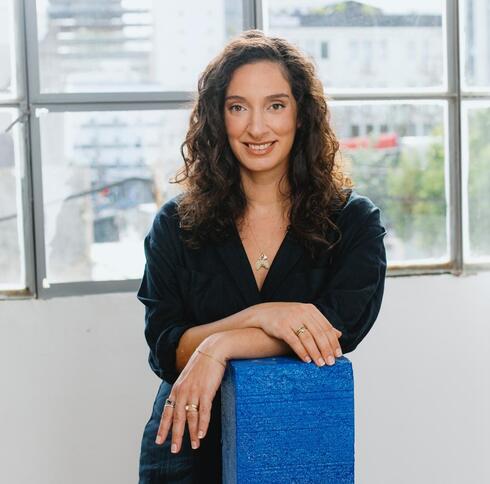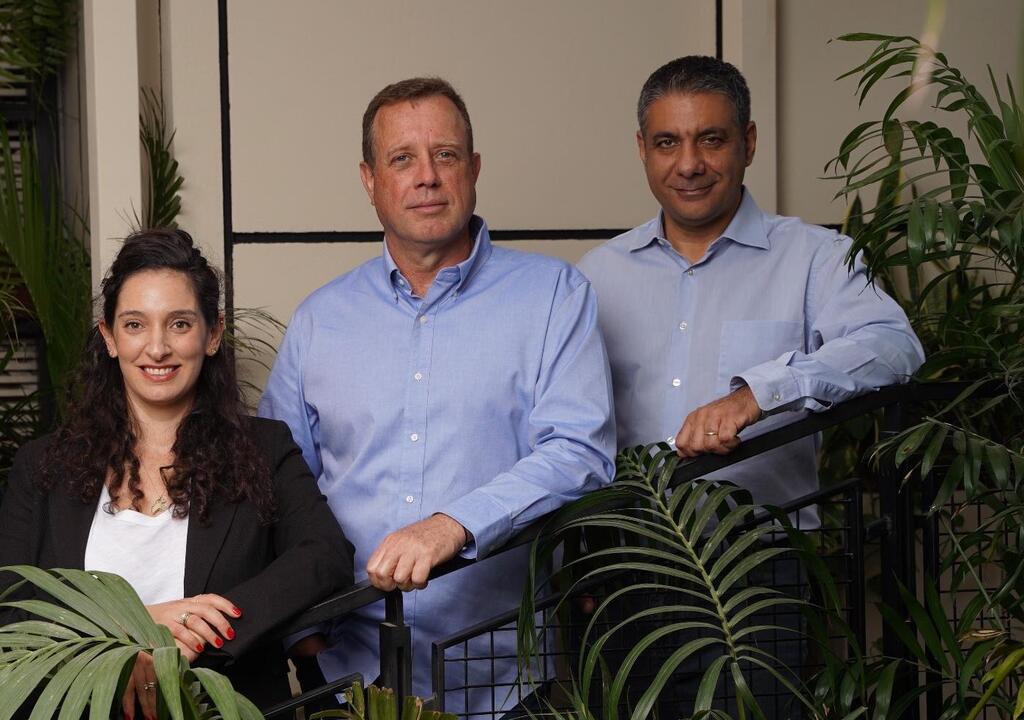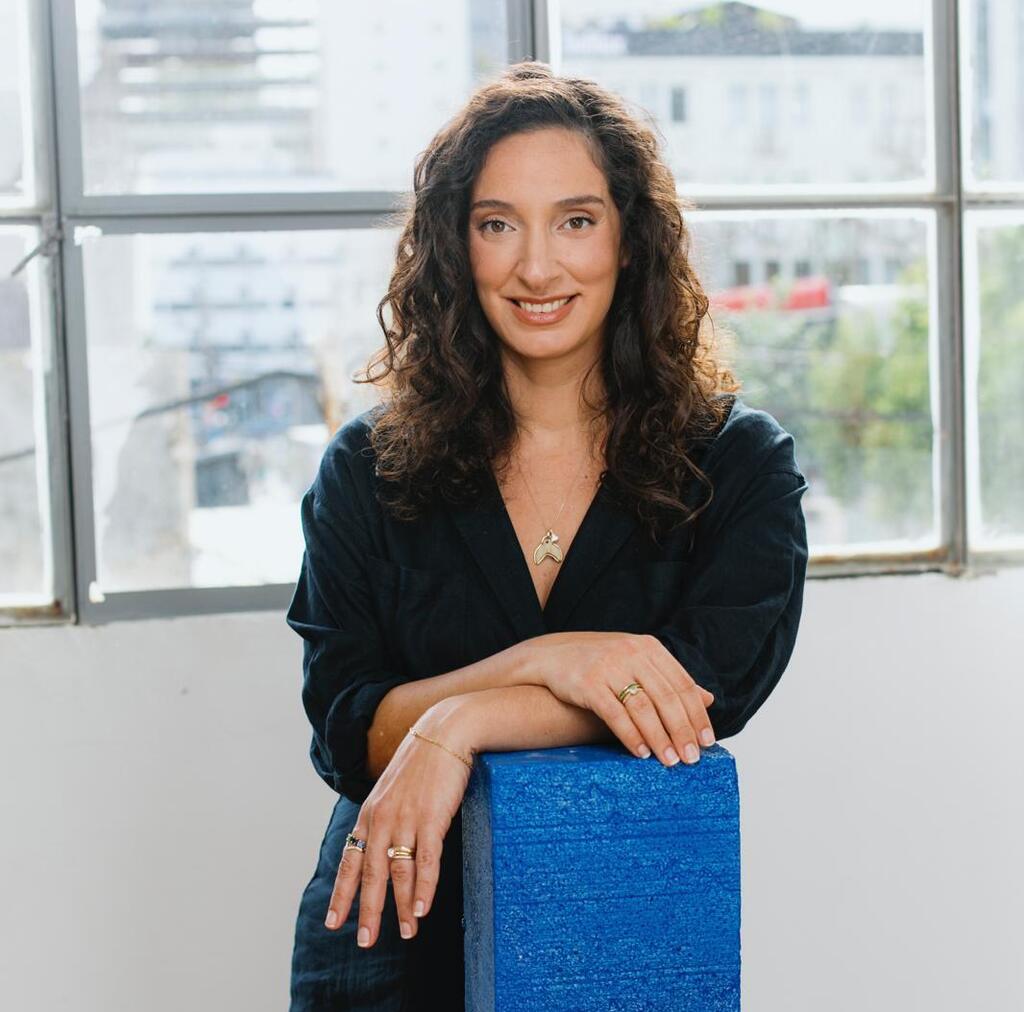
“You need an internal vision to build something big out of this insane crisis”
Maya Azoulay, partner at lool ventures, spoke to CTech about investing in Israeli tech in this tumultuous period, the role of investors in stimulating Israel’s economy, her personal career odyssey, and her membership in the small club of female investors in Israel
For Maya Azoulay, a partner at Tel Aviv-based VC lool ventures, there has never been a better time to invest in Israeli tech. “This is the best time to deploy capital because the ability to deliver is so high and the talent is so great,” she says. “We have a perfect storm, because the market conditions are such that if you aren’t a founder who knows what you’re doing, you likely won’t succeed. The rain washed away a lot of companies that didn't have the business justification.”
Israel’s small VC sector has repeatedly highlighted how the crises that have engulfed the Israeli tech industry, the market and the country as a whole, are, in fact, opportunities to access this market and to separate the wheat from the bloated, overvalued chaff, a sentiment that Azoulay shares. “Many of Israel’s best companies have been built during crises. If you’ve been through a few innovation cycles, you know that the best time to invest in a company is during and after such crisis times.”
lool, founded by General Partners Avichay Nissenbaum and Yaniv Golan, manages $200 million in capital across several vehicles, and is currently operating out of its third fund. Its portfolio includes companies like Beewise, Flip, NoTraffic, and Eleos, and has seen several successful exits including ZooZ, acquired by PayU, and MarketMan, acquired by PSG. Azoulay’s reasoning is sound when you consider that in the past quarter alone, three of lool’s portfolio companies have raised large rounds, which she says speaks to the global appetite for investing in Israel’s ecosystem.
At the same time, she is adamant that, “We need to get out of the mud. We’re a small company making too much noise globally.” The company in question is Israel. “This is a high-stakes game and we have just one choice, which is winning. This train needs to continue moving forward.”
Running fast and breaking things
Azoulay studied law and business at Reichmann University, majoring in finance. She was consulting for large organizations, particularly government bodies, when she became disillusioned with the slow pace and bureaucracy. "I wanted to get into tech where you can run fast, break things, and grow without climbing across the corporate ladder," she says.
That desire for speed and impact led her to lool ventures when she was only twenty-eight. She spent three years as a principal and was instrumental in several successful investments. Despite her success, Azoulay felt the need to broaden her operational experience and spent the next seven years in executive roles in the tech industry including at Hibob, Venn and as COO at EX.CO. She credits these experiences with teaching her the value of strategy, leadership, and the complexities of shifting a company's direction.
After several years of operational experience, she felt ready to return to lool. “I was very excited to hit the ground running,” she says. She began working just a week before the events of October 7, 2023. Azoulay is no stranger to personal loss and trauma: her commando brother, Gal, died 14 years ago during his service. This, however, didn't make her any more prepared for 7/10.
A mother of three, she feels a profound sense of responsibility to Israeli society and the future of the state, especially during this dark period. “I ask myself all the time what my role in society is. I’m responsible for deploying capital into companies who - if I do my job correctly - will employ many people. We all feel a significant sense of responsibility to ensure that companies who have the best chance of success get capital, hire people, create jobs for everyone - that’s the new Zionism in a way for me.”
2 View gallery


lool partners: Azoulay (L), Avichay Nissenbaum, and Yaniv Golan.
(Credit: Studio Sheva)
She says that she is looking for companies that are future-oriented and looking at deep, systemic problems. “If it's too easy to create or replicate, it's not long-lasting. Founders need to be proactive in shaping the world, to be able to think about what the world will be like in 5-10 years and how to be part of that, and not just react to short-term problems. You need an internal vision and fire to build something big out of this insane crisis.”
The smallest club
“I invested in two companies this year and gave birth to my third child. I was taking meetings with founders and would arrive with my baby and people were shocked,” Azoulay says. “It should just be normal, but some people looked at me like ‘why are you not at home?”
Azoulay is part of a highly exclusive club - one of a handful of female partners in Israel’s male-dominated VC landscape. Only 10% of investors in Israel are women - one of the lowest representations globally. This is also significantly lower than Israel’s tech industry in which women account for about 30% of the total workforce.
She says that because the VC market in Israel is so small and the number of women in it that much smaller, “your colleagues are in fact other firms.” She rattles off the (brief) list of female partners at other VCs - Glilot, Joule Ventures, Grove, SCapital - all of whom she knows and considers close friends and colleagues.
While Azoulay notes that there’s a lot of work to do, she doesn’t think that it’s fair or helpful to compare the Israeli market to the U.S. in this regard. “The industry in Israel is significantly smaller and more condensed than other markets, let alone the U.S. market. Not only are we a smaller ecosystem, with fewer startups, but we’re also competing with U.S. investment firms for those startups.”
She highlights that VC cycles are much slower than the fast pace of the tech industry, which also partly explains why change in general is slower and less visible than the tech industry. “You commit 10-14 years when you’re fundraising for a fund. It's hard to commit to something for such a long period of time. In the U.S. it’s very common to go back and forth between firms because there are so many but in Israel there are fewer opportunities so it’s a major commitment.”
Azoulay thinks that as the number of female executives and CEOs rises in the industry, this will lead to a higher number of women in VCs. She sees a growing appetite both locally and internationally for female-led ventures. "LPs are prioritizing women-led ventures and the trend is increasing."














